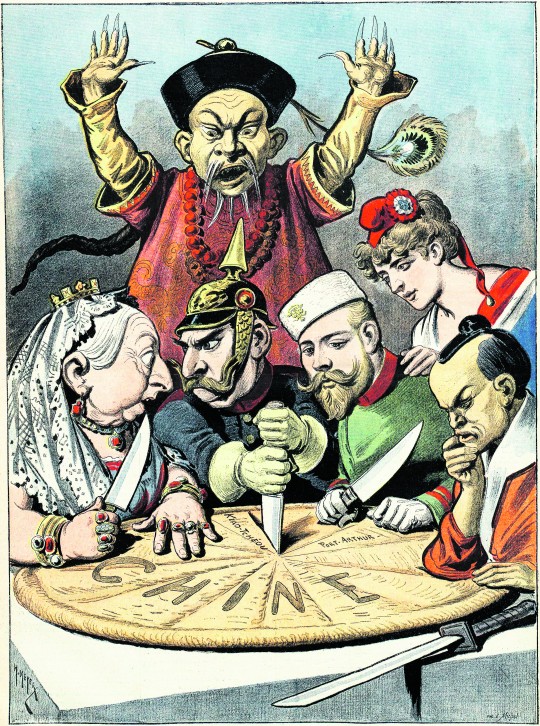Latvia's example of introducing despotism
For Latvians it is worth noting the coincidence between the appearance of Covid-19 and the centenary of the first printing in Latvian of Oswald Spengler's 1918 warning about despotism taking over Europe after the year 2000.
It would be asking too much for the news of "Der Untergang des Abendlandes" by O. Spengler (1880-1936) to reach Latvians within days, weeks or months of its printing in Germany, even in circumstances where Latvia was still under German occupation when the book was published. Latvians cannot be blamed for their lateness if only on September 5, 1920, the newspaper "Latvijas Sargs" reported that there was no longer a single German who had not read Oswald Spengler's book "The Decline of the West." I should say not "only" but "already" in the autumn of 1920, less than two years after the book's publication. It is the same with Covid-19. It took a few years to be able to say with full confidence that Covid-19 does not stand for a disease, but for a set of techniques designed to change the social order on a world scale. There is nothing unique about what is happening in Latvia, but it is clear and easy to understand. Bens Latkovskis has described it all convincingly in his December 22 Neatkarīgā article "We managed to build a totalitarian state in one year."
Psychotherapists are suited to nonsense

In 1920, "Latvijas Sargs" gave not old but super-fresh news, insofar as it concerned not the fact of the book's publication but the result. Namely, that by then, in the second half of 1920, there was no longer a single German who had not read Oswald Spengler's book. Even if this was an exaggeration in the literal sense, it was also a fitting way of describing the book's great success. The question is, how can predictions of the future be so successful practically at the time they are made, when the fulfilment of any prediction was not yet possible by definition? Were the Germans all as one endowed with the ability to foresee the future, at least to the extent of distinguishing prophecy from lies and delusions? Of course, the Germans did not have that ability. The success of Spengler's book was not due to the fact that in 1918 people would have known about the fulfilment of Spengler's predictions what we know in 2021 or have known since 2000, which Spengler called one of the landmarks on Europe's road to destruction. The book satisfied the demands of its readers not to know about the distant future, but to be reassured about the present almost in the span of a blink of an eye. Had the book been published a few months earlier or later, it is unlikely that its contents would have saved it from sinking into the ocean of graphomania.
Latvians are also among the saviors of the book, among those who have raised Oswald Spengler's pedestal. Latvians also took part in creating the conditions that made the Germans agree with Oswald Spengler that the end was near for the whole of Europe, rather than just for their good life, if only where some of the western provinces of Russia were being transformed into the Latvian state.
O.Spengler's book's success was not denied, but perhaps even exaggerated from the very beginning as a way of refuting its contents. The book was in all senses a cheap remote psychotherapy session for Germans only, with no historical content, but, as it turned out later, with a historically negative meaning, since without Spengler's help the Germans would probably not have recovered from their defeat in the First World War and would therefore not have been able, under Hitler, to organize a rematch, i.e. the Second World War. This was said a hundred years ago, and it is repeated today and reinforced by the assertion that a hundred years after the publication of Spengler's work, Europe not only exists but is flourishing and thriving as the European Union, as a monetary union capable of offering a reserve currency to the whole world, or as a dreamland for refugees from all over the world. After all, nothing could possibly come true according to the book, which is nonsense - "ģeķība", as the first evaluative judgment on it translated into Latvian in 1920.
Like the ruins of imperialism in Afghanistan

The first publication, on September 5, 1920, concerned only the success of Spengler's book and its author, not the content. The next publication was devoted to it in the same "Latvijas Sargs" on September 11. The contents of the book are reproduced in one and a half sentences: "After 2200, Egyptism, Mandarinism and Byzantinism will reign in Europe, the state mechanism will freeze and Europe will fall prey to new nations and external invaders. Then, gradually, pre-historic conditions will set in. People will go back to the forests, etc." In order to reassure its readers by dismissing such horrific images, the newspaper spoke not for itself but for Benedetto Croce (pictured, 1866-1952), the "Naples' man of science" and, at that time, Italy's Minister of Education. He was of the opinion that Spengler's predictions were "nonsense which can have no other consequence than to confuse the mind and depress the state of mind".
B.Croce's position is that the future remains unknown, "but this we know, that we do not want to go back to savage life, nor to the conditions which preceded it, i.e. to despotism. Man is something spiritual, therefore something creative, which contains within itself endless power, which makes it possible to take up and conquer a successful struggle in whatever circumstances, however difficult they may be. But Spengler advises us to surrender to the yoke of imperialism and socialism (which will reign from 1900 to 2000) and despotism because we are living in the grey-hair years of Europe and an old man must live as an old man."
At this point, let us use the quote by B. Croce only as a document of the predictions of O. Spengler. So, the yoke of imperialism and socialism until the year 2000 and despotism from the year 2000 until the year 2200, when the transition will take place (be completed?) to human life in a way that can no longer be described by words whose content was formed in those millennia when humans were already outside the primordial state or "forest." If so, Spengler's predictions have so far come true with complete accuracy. What is clear about socialism is that the Soviet Union collapsed in 1990, close enough to the year 2000, as the center of the "socialist camp" of countries that had been thrown around the world, nominally in Europe. Even closer to that was the attack on September 11, 2001, on some significant sites in the citadel of imperialism - the USA. In such a case, it does not matter whether the official version that the Islamist terrorist organization Al-Qaeda is to blame is entirely true. The alternative versions discuss the extent to which Al-Qaeda was merely a tool used by the ruling circles in the USA and, in general, in the system that spread all over the world wherever it was possible to locate US military bases to manage their relations. This was followed by the US-led retaliatory invasion of Iraq and Afghanistan, "where they never stop strangling each other," which Neatkarīgā discussed on August 22 this year. By then, the US occupation zone in Afghanistan had shrunk to the area of Kabul airport, where a small number of those who had worked for the Afghan self-government institutions maintained by the occupiers had managed to enter. Some of these refugees did and some did not get seats on the planes on which the US army and its civilian auxiliaries from Western countries, who had priority over Afghans for seats on the planes, left Afghanistan.
The US action was dictated by both domestic political struggles and the tactical benefits of the weapons abandoned in Afghanistan going to those who might use them for their own benefit as well as for the benefit of US interests, but all these developments are evidence of the same thing: that the system that was understood as imperialism in Spengler's time has indeed collapsed.
It would be an unreasonably long story if Russia were to be added to the chain of world changes. So let us not even start with that this time, because even without that it is clear that communism and imperialism have happened exactly as Spengler once predicted. The question is whether the fulfilment of some of Spengler's predictions makes his spiritual legacy a teaching tool for people to become as comfortable with despotism as they or other people were under communist or imperialist regimes.
Stand in line for bread and saltwater
An important objection to O. Spengler is that he is merely proposing a new and really beautifully crafted naming system for historical examples that could just as easily be called something else and just as neatly incorporated into other interpretations of history. How, for example, does renaming imperialism or communism as despotism really change the way people are beaten, shot, stabbed, burned, starved or hanged, without which, at least on the threat level, no one will listen to any despots?

So far, in Latvia, the fear of being beaten, etc. is being replaced by the fear of Covid-19, for which people are prepared to submit to dressage, which is exactly why it is dressage - because people are forced to act contrary to common sense - to act against their nature, just as in circus animals must behave in a way they would not behave under natural conditions. Yesterday marked exactly one year since Neatkarīgā, on December 30, 2020, described the situation at that time, in which "at the shelf with the socks that cannot be bought, people's relationship with common sense is destroyed, according to which it is impossible to believe that the same person (who puts on a face mask, disinfects his hands, uses a shopping basket or a trolley that are only available in a limited number, etc.) does not spread or receive Covid-19 at the shelf with bread, but spreads or receives Covid-19 at the shelf with socks."
Half a year later, the authorities admitted that yes, everything is the way Neatkarīgā said, and abolished shelf sorting in shops, but only to introduce sorting of shops and, above all, of people according to their right to buy basic necessities. The images of a year ago of "the shelf with the socks that can't be bought" have been replaced by the following images of shops, which are sufficiently striking for B. Latkovskis to draw the conclusion that Latvia is a totalitarian state. He quoted from an eyewitness's public statement: "Here in Latvia, and I haven't even fully grasped it, we have basically introduced an apartheid regime and a caste system, which I see every day in Pārdaugava when I drive past the little Maxima store that doesn't ask for those certificates. People who cannot shop anywhere else are crowding in there."
Why can't they? Because they cannot or will not crowd around vaccination places once every six months, where the only hope for visitors is that they might be only injected with saltwater, which is not a health hazard. The simplest arithmetic, however, which cannot be hidden in Latvia or in the world, shows that neither morbidity nor mortality is affected in any way by the Covid-19 vaccination. A few days ago, Latvian news ran a text by the Centre for Disease Prevention and Control stating that "the number of vaccinated people with Covid-19 has already exceeded the number of unvaccinated people several times in the past month". This vaccinated crowd by no means gets ill with just a runny nose and minimal strain on the medical system, and the number of deaths per day, both with Covid-19 and in general, tends to exceed such figures in the period before vaccination began.
Global deglobalization has begun
One can understand companies seizing the opportunity to market saltwater (hopefully!) at the price of the world's most scarce medicine. One can understand bankers calculating how much money not only they, but also their children, will forever collect on yet another billion euros that Latvia has just added to its never-to-be-reimbursed national debt. One can also understand the countries and their hired propagandists who have to combat O. Spengler's warnings that all these machinations will not end well. We will just have to return to the forests as the habitat from which people once escaped.
If one reads Spengler's texts from the perspective of current events, the year 2200 seems a realistic date by which living "in the forests" in the broad sense of the term will apply to the whole of humanity, i.e. to its remnants. Two considerations suggest this. The first is that the inability of Europeans to maintain their borders and to maintain their infrastructure and, quite simply, their way of life is developing so rapidly that it will be impossible by 2200 to maintain any semblance of living in cities with production, education, medicine, administration. The second is that O. Spengler, an eyewitness of the heyday of imperialism, could not have missed the impossibility of any life - idyllic or horrible - in the forests of Europe if there remained people elsewhere in the world capable of even maintaining the weapons and other technical tools which they acquired from the Europeans. This would give them the upper hand to clear Europeans out of their forests as deftly and easily as Europeans at the turn of the 19th/20th century imagined they could handle Africans, Indians, Chinese, etc. The Europeans' inability to carry out their plans, which Spengler had warned them about in advance, was subsequently revealed.

After his 1918 bestseller, O. Spengler published a sequel in 1922. In 1931, he wrote the essay "Man and Technics," which in 1933 became his only work translated into Latvian. In 1933, after the Nazis had already come to power, his "Jahre der Entscheidung" (The Hour of Decision) was published with the claim that it was the first part of his work, but he was not prepared to give the predictions that the Nazi propaganda needed and died suddenly.
At the risk of seeing in O. Spengler's works what current events reveal, rather than the works themselves, his prediction can be accepted as that by the year 2200 is that humans will no longer be able to maintain the level of technological development that they themselves have created. People do not inherit from their parents the skills of language, mathematics or work. Each successive generation has to relearn all this, but at some point, it may prove impossible to do so, precisely because the use of technology has made people too spoilt (mad, weak...). Solutions will be sought through local violence, gradually abandoning the global market, currency, tourism. Covid-19 in this context looks like a round square - an attempt to manage deglobalization globally.
